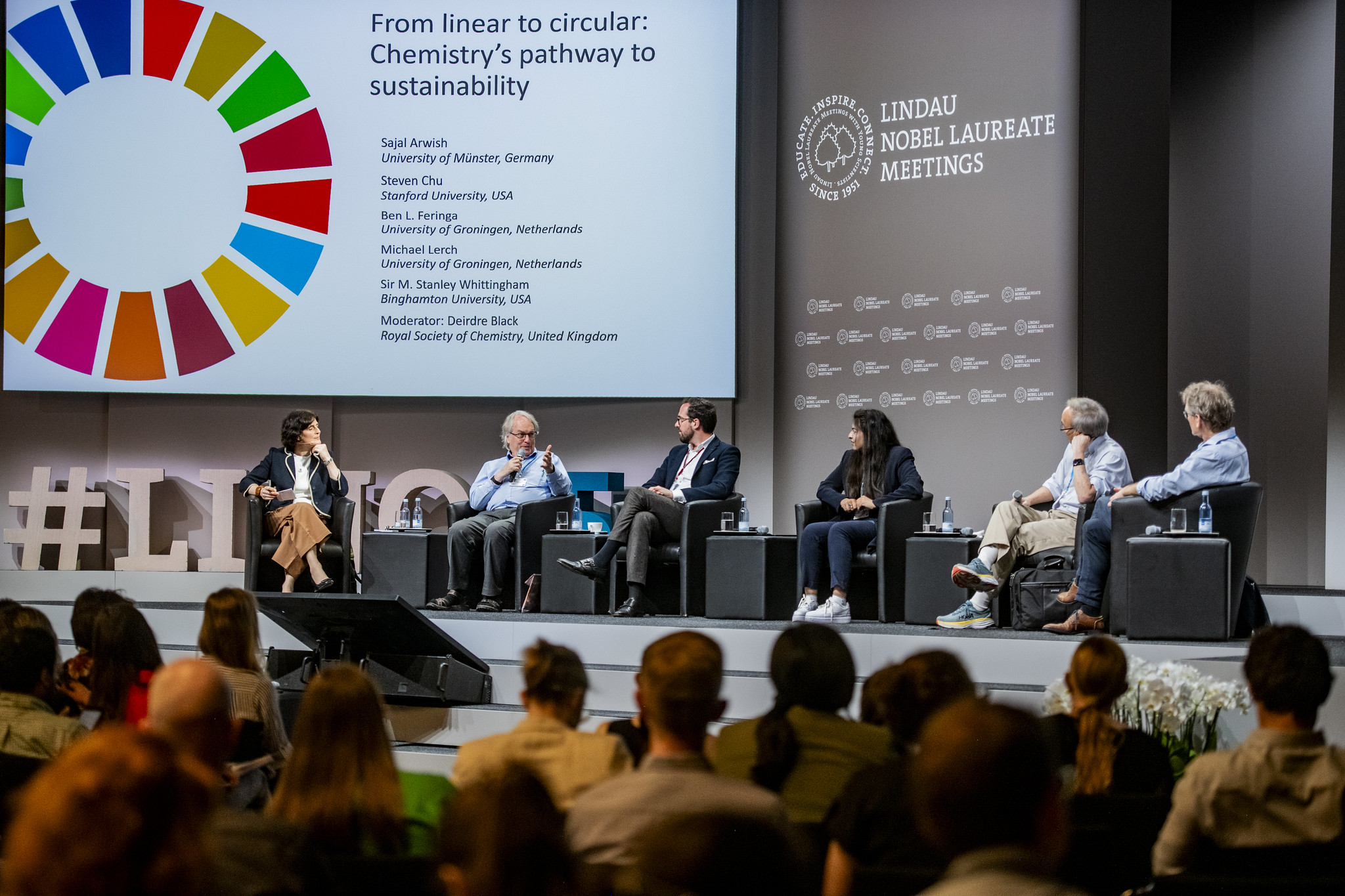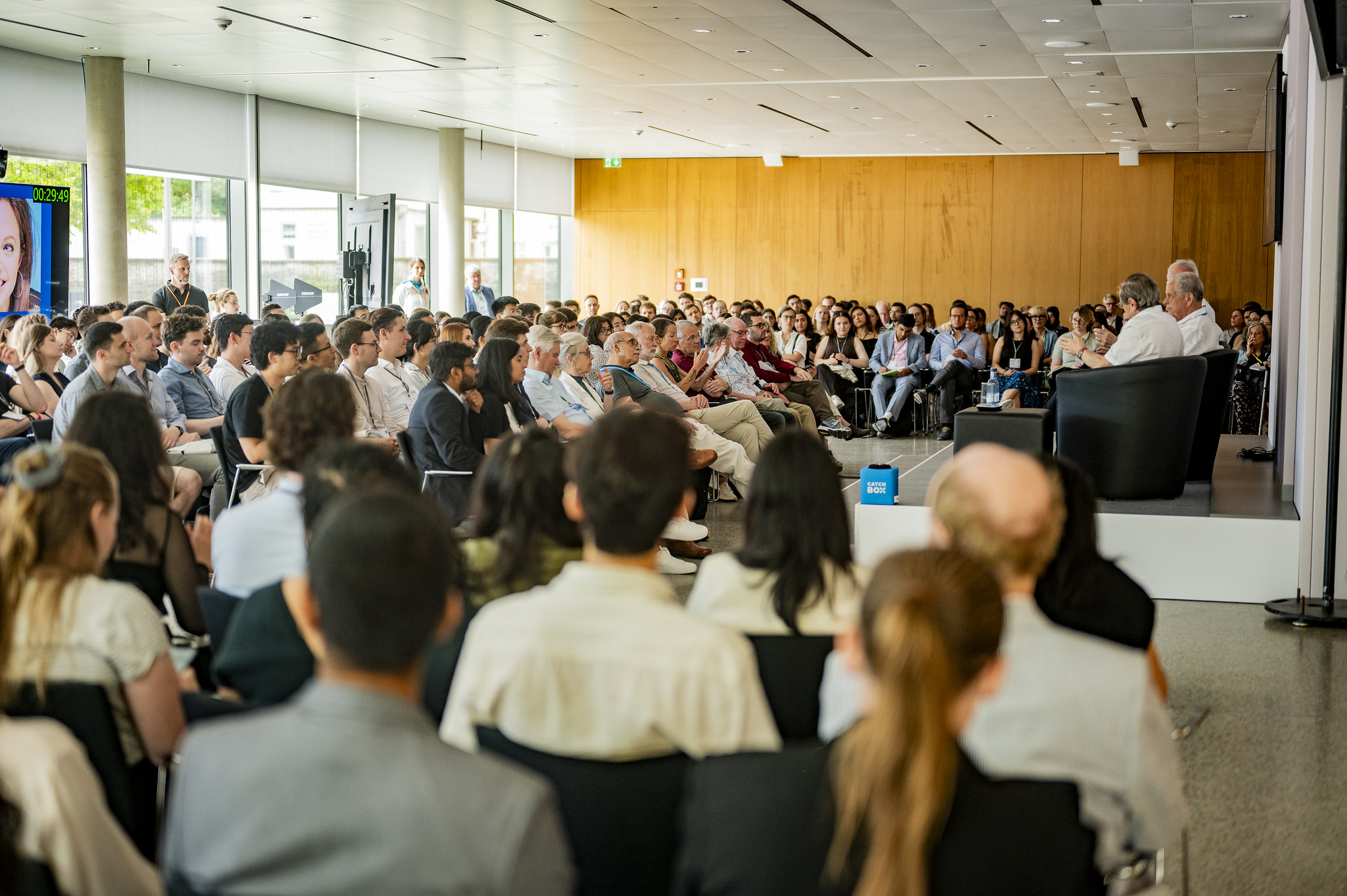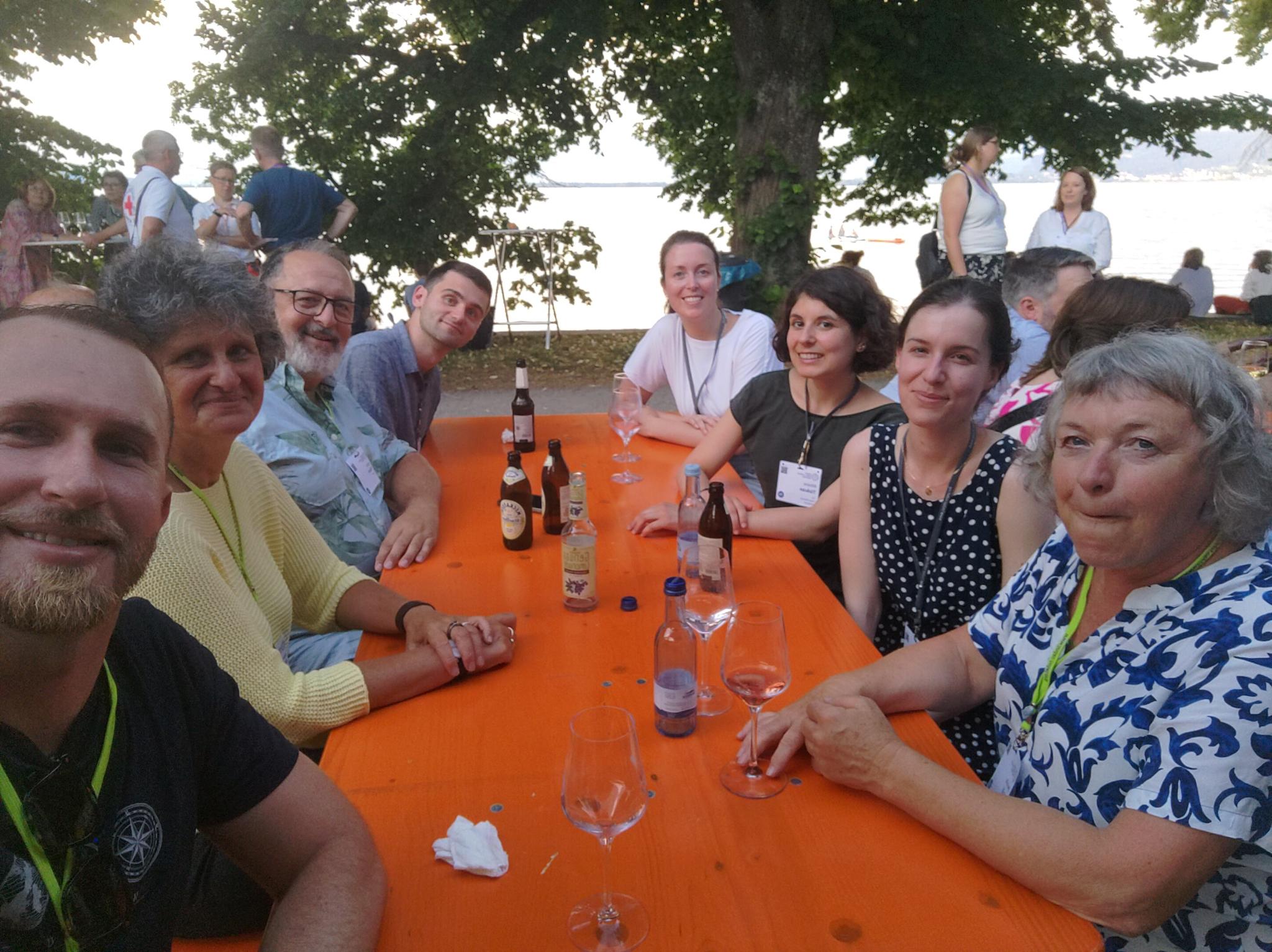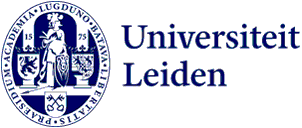
Lessons from Nobel Laureates: curiosity, risk-taking and personal conversations
What do you do when you get the chance to meet Nobel Prize winners in your field? You say ‘yes’, of course! Two young chemists from Leiden had the opportunity to attend the Nobel Laureate Meeting in Lindau, Germany. They share what the experience was like.

As the train takes you from Zurich towards Lindau, you see the lake stretching out around you, the mountains of Switzerland, Germany and Austria on the horizon, and a landscape full of green. This is the setting of the Lindau Nobel Laureate Meeting.
This year, Chemistry Master’s student Bibiana Türkcan and PhD candidate Samuel Schwab (LIC) were invited to attend the conference, where Nobel Laureates in Chemistry meet the next generation of researchers. The aim: to connect generations, cultures and scientific disciplines – and in doing so, advance science.
In conversation with Nobel Prize winners
For Bibiana, the meeting was above all a chance to see science from a broader perspective. ‘Science doesn’t start and end in the lab,’ she says. ‘It’s always in dialogue with the world outside.’ One of the panel discussions on sustainability illustrated that perfectly. Michael Lerch (a 2017 Lindau alumnus and lecturer in Groningen) made a striking comment: ‘We're not educated to think on the systems-level.’ Bibiana felt this conference was a great place to practise that kind of thinking.
-

Panel discussion on sustainability, Michael Lerch in the middle (photo: Patrick Kunkel) -

Open Exchanges with Aaron Ciechanover & Michael Levitt (photo: Patrick Kunkel)
The Open Exchanges rarely focused on technical details. Instead, discussions revolved around personal motivations and societal issues. ‘That made the conversations relatable, despite the “fame” of the Nobel Laureates,’ Bibiana says. ‘It really felt like a dialogue between them and us,’ Samuel adds.
What stood out most to him was the atmosphere. Since no one knew each other, it was easy to connect. Samuel spoke with young scientists from more than twenty countries. ‘That was my favourite part: meeting all these different people and hearing their stories.’
-

Bibiana and several 'young scientists' with whom she spent much of the week hanging out on Mainau Island -

Bibiana during a closing "grill & chill" to which the host families where the young scientists stayed were also invited.
Curiosity connects
For Bibiana, it wasn’t the Nobel Laureates who left the deepest impression – it was the other young researchers she met. ‘We came from all over the world and were at different stages in our careers, but our curiosity brought us together.’ She loved the conversations about science, culture and societal issues. ‘That broadening of perspective was the most inspiring and educational part of the whole conference.’
Samuel was particularly moved by his conversations with Ben Feringa, Dutch winner of the 2016 Nobel Prize in Chemistry. ‘He radiates energy and motivation, it’s clear how much he loves what he does.’ He was also struck by the respect Feringa shows for his PhD students and postdocs, and by his commitment to making his lab more sustainable. ‘That really resonated with me, because it’s something we’re also working on in the GreenTeam of Macromolecular Biochemistry.’

Lessons from Nobel Laureates
Bibiana noticed a recurring theme in the Nobel Laureates’ messages: scientific success comes from curiosity, courage, and collaboration. ‘They emphasised how important it is to take your time, explore other fields, and take risks – even if the research doesn’t seem directly useful right away.’ But conversations with fellow young researchers also revealed another side. ‘In today’s academic system, those conditions are under pressure,’ she explains. Even so, she remains hopeful. ‘I want to help bring about change in my career – and above all, not be afraid to take risks.’
Samuel says he learned most from listening to others – especially people further along in their careers. One lesson from the Nobel Laureates in particular stuck with him: it’s OK to change direction. ‘They showed that switching fields is perfectly fine. Scientists are good at learning – and that remains a strength, no matter how far you are in your career.’
